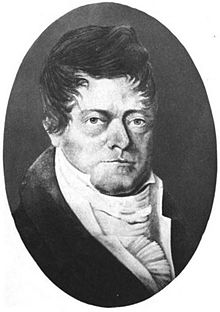David R. Williams
| David Rogerson Williams | |
|---|---|
 |
|
| Member of the South Carolina Senate from Darlington District | |
|
In office November 22, 1824 – November 23, 1828 |
|
| Preceded by | Rasha Cannon |
| Succeeded by | John Dick Witherspoon |
| 45th Governor of South Carolina | |
|
In office December 10, 1814 – December 5, 1816 |
|
| Lieutenant | Robert Creswell |
| Preceded by | Joseph Alston |
| Succeeded by | Andrew Pickens |
| Member of the U.S. House of Representatives from South Carolina's 3rd district |
|
|
In office March 4, 1811 – March 3, 1813 |
|
| Preceded by | Robert Witherspoon |
| Succeeded by | Theodore Gourdin |
|
In office March 4, 1805 – March 3, 1809 |
|
| Preceded by | Benjamin Huger |
| Succeeded by | Robert Witherspoon |
| Personal details | |
| Born |
March 8, 1776 Darlington County, South Carolina |
| Died | November 17, 1830 (aged 54) Darlington County, South Carolina |
| Resting place | Darlington County, South Carolina |
| Political party | Democratic-Republican |
| Profession | planter, lawyer, politician |
| Military service | |
| Allegiance |
|
| Service/branch | United States Army |
| Years of service | 1813–1814 |
| Rank | Brigadier General |
| Battles/wars | War of 1812 |
David Rogerson Williams (March 8, 1776 – November 17, 1830) was a Representative in the United States Congress and the 45th Governor of South Carolina from 1814 to 1816.
Born in Darlington County, Williams was educated at schools in Wrentham, Massachusetts and attended Rhode Island College until he withdrew in 1795. Nonetheless, after studying law he was admitted to the bar in 1797 and he practiced law in Providence, Rhode Island for three years. Williams returned to South Carolina and became an editor of the Republican papers City Gazette and Weekly Carolina Gazette of Charleston. In 1803, Williams moved to Darlington County to engage in cotton planting and various manufacturing enterprises.
Williams was elected to the United States House of Representatives in 1804 from the 3rd congressional district as a Democratic-Republican. In general, Williams was a political maverick who stressed the need for limited government while also having greater accountability to the voters. When Williams first arrived in Washington D.C., he was offered to have dinner with President Thomas Jefferson, but Williams refused because he felt that it might interfere with his independence of mind. To let the voters know how their money was being spent, Williams requested an itemization of appropriation bills rather than a lump sum, but the House voted against an itemization.
...
Wikipedia
